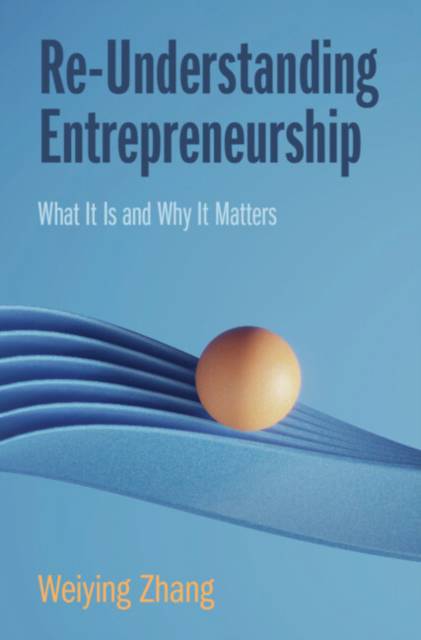
Door een staking bij bpost kan je online bestelling op dit moment iets langer onderweg zijn dan voorzien. Dringend iets nodig? Onze winkels ontvangen jou met open armen!
- Afhalen na 1 uur in een winkel met voorraad
- Gratis thuislevering in België vanaf € 30
- Ruim aanbod met 7 miljoen producten
Door een staking bij bpost kan je online bestelling op dit moment iets langer onderweg zijn dan voorzien. Dringend iets nodig? Onze winkels ontvangen jou met open armen!
- Afhalen na 1 uur in een winkel met voorraad
- Gratis thuislevering in België vanaf € 30
- Ruim aanbod met 7 miljoen producten
Zoeken
€ 50,45
+ 100 punten
Uitvoering
Omschrijving
How do entrepreneurs make decisions in the real world? Why are entrepreneurs absent from mainstream economics? What functions do entrepreneurs play in the market? What type of institutional environment is needed for entrepreneurship to play a role? Neoclassical economics is a market theory without entrepreneurship. This misconception distorts our understanding of how the real market works, leading to a theory of market failure that forms the common foundation of various government interventions. The market is not only an allocative process but, more importantly, a discovery and creative process. To understand the real market, Weiying Zhang argues that economics must shift from a price-centric to an entrepreneur-centric paradigm. Blending theory and narrative, Zhang intersects history with the present supporting his theory with relevant case studies. He argues that once entrepreneurship in the market is correctly understood, the foundation for government intervention is undermined and the economy can sustainably flourish.
Specificaties
Betrokkenen
- Auteur(s):
- Uitgeverij:
Inhoud
- Aantal bladzijden:
- 377
- Taal:
- Engels
Eigenschappen
- Productcode (EAN):
- 9781009453363
- Verschijningsdatum:
- 2/05/2024
- Uitvoering:
- Paperback
- Formaat:
- Trade paperback (VS)
- Afmetingen:
- 152 mm x 229 mm
- Gewicht:
- 503 g

Alleen bij Standaard Boekhandel
+ 100 punten op je klantenkaart van Standaard Boekhandel
Beoordelingen
We publiceren alleen reviews die voldoen aan de voorwaarden voor reviews. Bekijk onze voorwaarden voor reviews.











